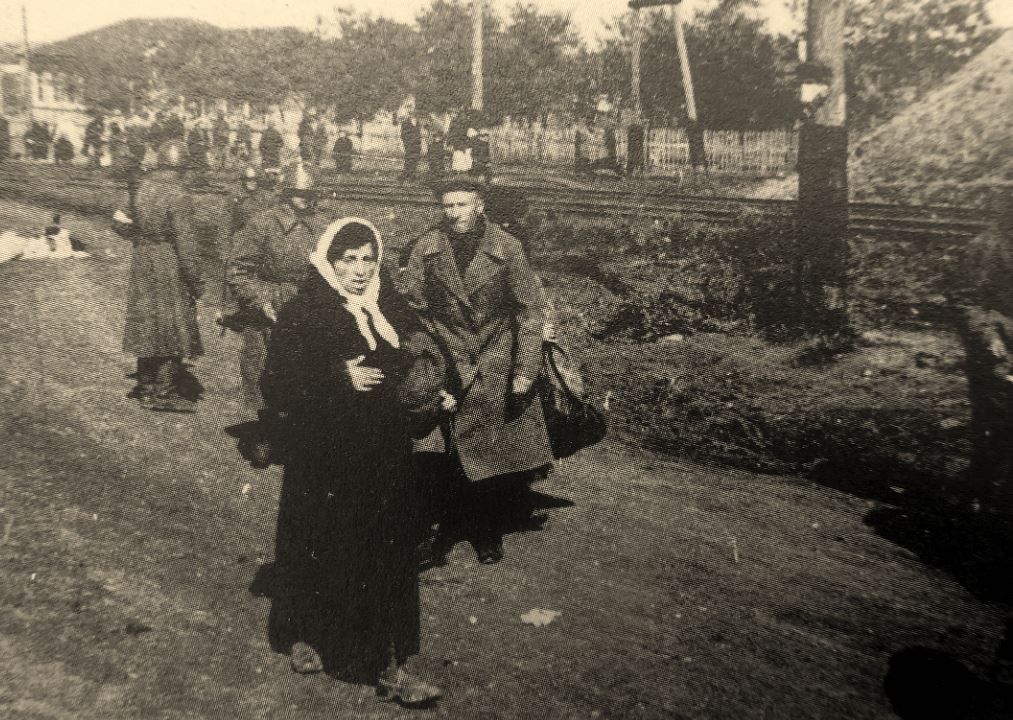During the Great Patriotic War, 187 settlements were destroyed in the Chashniksky region. Some villages were burned along with their inhabitants, sharing the fate of Khatyn. Often settlements were burned out of revenge - because their residents maintained contact with the partisans. Read about how it happened in the memoirs of eyewitnesses of those tragic events.

The Nazis destroyed the village of Vishenki along with its inhabitants in March 1944. Its former resident, Maria Bulanova (hereinafter, names and surnames have been changed) miraculously managed to escape. “When they started shooting, I ran out of the house and rushed to my aunt,” she recalls. “Sitting in her house, I saw how the Nazis drove small children, women, and old people along the road. I hugged my cousins tightly. The Germans burst into our room and ordered us to go to a meeting. We decided not to go anywhere. On the hill where the two houses of the Shumanovichs and Petukhovs stood (they burned people in them), the Germans finished their dirty work and once again walked through the village. They also stopped by to see us. One, right from the porch, started shooting at us with a machine gun, and then at my aunt, who was standing against the wall. She, wringing her hands, screamed wildly, “Ladies, what are you doing, don’t touch me, gentlemen.” Then she went to the German, and he pointed the machine gun at her. I was wounded in the leg. I remained alive only because my brother and sister, whom I held in my arms, shielded me with their little bodies. Then the Germans threw straw at my feet and lit it, and they themselves went out into the courtyard and began to make sure that none of us ran out of the house. When they moved a little further from the house, I stood up and, overcoming the pain, jumped out of the burning house. In April of the same year, the Nazi invaders destroyed the village of Astashovo. Before burning it, the Nazis made fun of civilians for their connection with the partisans. “In early spring, the residents of my home village of Astashovo lived in anticipation of imminent liberation from the fascist crowd,” recalls Igor Matulsky. – We knew that the Red Army was driving the Germans out of our land. Leaflets distributed by partisans in Astashovo and surrounding villages told about this. The Germans learned about the connection between the Astashovites and the partisans. On the morning of April 22, the punishers burst into Astashovo in a brutal flock, demanding to show where the people's avengers were hiding and who was in contact with them. But my fellow countrymen were silent, there was no traitor. Seeing the indestructibility of the Astashovites, feeling their hatred for themselves, the punitive forces set fire to the houses where the partisan families lived. And then the Nazis beat the rest of the village residents, drove them into one house and set them on fire. They did not spare anyone: neither old people, nor women, nor children. My mother and my three sisters also died in the flames. 45 houses were burned by punitive forces in Astashovo. There was only one residential building left, in which the relatives of the policeman lived. We, the partisans, did not know that day about the tragic fate of our native village and its inhabitants. That’s why they couldn’t come to their aid or protect them. Neither my father nor I knew that no one from our family was alive anymore. A resident of the village of Punki, Ivan Porenko, also kept in touch with the partisans. For this, the Nazis brutally beat him and then sent him to the notorious Auschwitz concentration camp. “In 1943, I was captured by the Germans, who unexpectedly appeared in our village,” the man recalls. “My older brother was in the partisan detachment of the Dubov brigade at that time.” The night before, a liaison from a partisan detachment was in our house. Mom had to donate food to the detachment and baked bread. At that time I was tending horses and suddenly saw a German detachment moving towards our village from the direction of Medvedsk. The partisan jumped out through the window and ran towards the forest, which was very close. The Nazis opened fire, but he managed to escape. My mother and I were arrested and taken to the village of Demidovichi, where they were terribly beaten, trying to find out about the whereabouts of the partisans and those who were helping them. I was silent and they beat me again until I lost consciousness. They poured water on me and beat me again. And I was only 14 years old then. Then he and his mother were sent to prison in Lepel. The commander of the punitive detachment that captured us said at the trial that we should be shot. We were in prison and waiting to die. But for some reason we were not shot, but were sent to Vitebsk, and from there to the Auschwitz concentration camp. There we unloaded beets and pumpkins from the wagons, and sorted through potatoes. From the camp they were later taken to the front line for work, many died under bombing, many from hunger, many were burned in crematoria. By some miracle I survived. Until this time, I can’t believe it, because so many people died next to me... The official representative of the prosecutor's office of the Vitebsk region, Daria Kovalenko, and the prosecutor of the Chashniksky district, Sergei Galimbovsky, shared the memories of eyewitnesses of those terrible events with “VV”. The circumstances of those terrible events became known during the investigation of the criminal case into the genocide of the population of the modern territory of our country during the Great Patriotic War by Nazi criminals and their accomplices. Photos from open sources are for illustrative purposes.